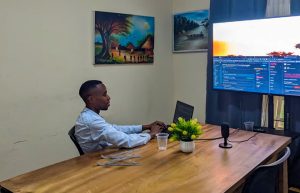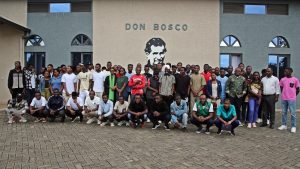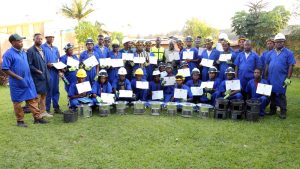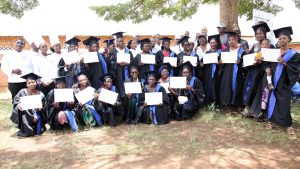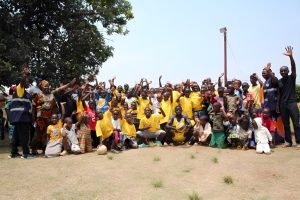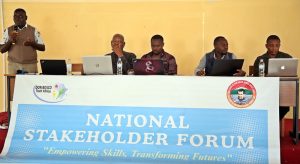From Aspiring Journalist to Drone Pilot: Adeline Uwizeyimana Shares Her Unconventional Path

Adeline Uwizeyimana
Kigali, Rwanda – Drone pilot Adeline Uwizeyimana shared her unique and challenging journey into the growing field of drone technology during a recent appearance on the Real Talk TV program on Saturday. Uwizeyimana, who initially resisted pursuing a technical career, is now navigating the skies of Rwanda, operating drones used for everything from construction monitoring to public health initiatives.
Uwizeyimana revealed that she did not grow up around drones. Surprisingly, she noted: “In fact, I haven’t been yet in any plane”, clarifying that the first time she boarded a plane was “way in my 30s”.
Her early career aspirations leaned heavily toward the arts and media. “So I used to think that I will be a journalist. I love art,” she stated. She initially struggled with science courses in high school, admitting: ” I said I’m not meant for this. I will not punish myself trying to do science”.
Despite her creative leanings, she developed an interest in technology after her brother introduced a laptop. She eventually applied three times for courses related to media and film in Polytecnical College. However, fate intervened when she was admitted to Electrical and Electronics Engineering instead—a course she had previously dismissed. The decision was a shock: “It was like I was struck by lightning”.
Uwizeyimana explained that her family insisted she accept the admission to the government school, recognizing that “electronics and electrical engineering is really a good course”. She highlighted the poor perception of the film industry at the time, even today. Ultimately, she pursued the course, reflecting now: “But looking back then now, I’m glad that they pushed me to it because it led to where I am today”.
Discovery and Training
Uwizeyimana’s interest in drone piloting was sparked when she attended a UN Women event during college where she met Esther, a pilot. Esther shared her journey as a pilot, leading Uwizeyimana to remark: “that sounds interesting I think I could be one”.
She later applied for a job opportunity at Charis, feeling she fit the profile because she realized that drone operation offered a path to combine technology with her love for visual work: “I felt like that’s everything I have ever wanted”. At the time of application, she had never seen or touched a drone, only having watched videos and a TV show about them.
The journey to certification requires intense training. Pilots must undergo theory courses, simulation practice, and practical training on the field. The training, which includes studying “the geography, airspace, methology,” took her about three months. Uwizeyimana noted the extensive regulatory requirements, including learning air law and safety practices, such as communicating with the ATC (Air Traffic Control) and ensuring adequate distance from people. She started taking command of operations roughly nine months into her training.
Drone Operations and Rwandan Regulations
As a professional drone pilot, Uwizeyimana described her typical workday, noting that there are two types of days: those involving field work and those without. Before any operation, pilots must secure a permit from civil aviation and notify security personnel. They also perform a site survey to calculate risks related to weather, battery temperature, and radio frequency signals.
She highlighted that the rules and regulations governing drone operation in Rwanda are set by the Civil Aviation Authority. While the process is described as easy, she warned that many people neglect to look for the necessary clearance and certificates. Different certificates are needed depending on the weight of the drone being flown, such as those weighing 1 kilogram versus those weighing 35 kilograms. The largest drone she has flown weighed about 25 kg, used for spraying activities like “Malaria spraying in the marshland”. These spraying drones are partially metallic to support carrying up to 17 liters.
Advice to Aspiring Pilots
When reflecting on her journey, Uwizeyimana expressed deep gratitude: “I’m always grateful for my family and the government because their choice was really the best for me”.
She strongly encouraged young people considering the career path to take the initiative, regardless of background. She advised against the prevalent “victim mentality,” where people refuse to apply for jobs because they assume candidates have already been chosen.
She noted that the door is open for interested individuals, emphasizing that the Government of Rwanda is supporting the field by offering free training for drone pilots at institutions like the University of Rwanda (UR).
“If it’s something you want to do I advice to just go for it. It’s really interesting. You get to travel every time you find new places and then you look at the world from above. It’s really beautiful,” she concluded.

SUBSCRIBE TO OUR NEWSLETTER

